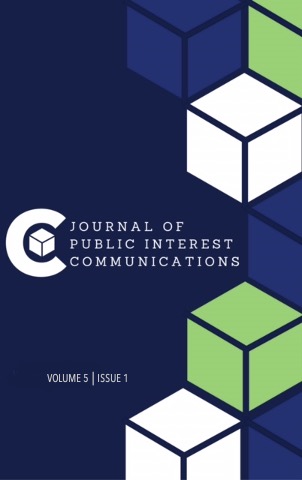Severe Allergies, Price Increases, and Supply Shortages
How News Frames of the 2016 EpiPen Crisis Continue the Conversation of U.S. Pharmaceutical Pricing
DOI:
https://doi.org/10.32473/jpic.v5.i1.p78Abstract
Controlling pharmaceutical prescription costs has been an interest in the United States for decades. In 2016, EpiPen experienced a 600% price increase. This exploratory framing study focuses on news coverage of EpiPen’s price increase and related pharmaceutical price increase stories through analyzing three U.S. television news programs’ coverage. Within 30 news segments that discussed EpiPen or medication price increases, analysis revealed four frames: economic, attribution of responsibility, morality and human interest, and conflict and powerlessness. This study provides a larger understanding of how the crisis of medication price increases is understood and implications for practitioners and individuals aiming to make medications more accessible.
Downloads
Published
Issue
Section
License
By submitting to the Journal of Public Interest Communications, the author(s) agree to the terms of the Author Agreement. All authors retain copyrights associated with their article contributions and agree to make such contributions available under a Creative Commons Attribution License (CC-BY NC) 4.0 upon publication.
Author Agreement
This agreement takes effect upon acceptance of the Submission for publication in JPIC.
- I hereby grant to the University of Florida (“the University”) the non-exclusive right to retain, reproduce and distribute the Submission in whole or in part, in print and electronic format and in any medium. This agreement does not represent a transfer of copyright to the University.
- The University may make and keep multiple copies of the work for purposes of security, backup, preservation and access; and may migrate the work to any medium or format for the purpose of preservation and access.
- I represent and warrant to the University that the work is my original work and that I have the authority as sole author or I have the authority on behalf of my co-authors to grant the rights contained in this agreement. I also represent that the work does not, to the best of my knowledge, infringe or violate any rights of others.
- I further represent and warrant that I have obtained all necessary rights to permit the University to reproduce and distribute the work, including any third-party material. Alternatively, I represent that my use of any third-party material is allowed because the material is not in copyright or I have performed a fair use analysis and reasonably believe my use is permitted. Any content owned by a third party is clearly identified and acknowledged within the work.
- I grant these same rights to the George A. Smathers Libraries at the University of Florida. Additionally, I grant the right to both the University and Smathers Libraries to enter into agreements with third-party entities and the rights necessary to host, print, index and abstract the Submission.
Open Access and Self-Archiving
JPIC follows an open-access publishing model, meaning that all articles will be publicly accessible on the Internet immediately upon publication. I understand that I may share the submitted manuscript (preprint) of the Submission on the Internet at any point before or after publication, with a citation and link to the final version of record to be added as soon as the issue is available. I may disseminate the final peer-reviewed version at any point after publication.
Creative Commons License
JPIC applies a Creative Commons Attribution License (CC-BY NC) 4.0 to encourage sharing and reuse of content and to maximize the impact of published research. By publishing in JPIC, I agree that the terms of this license will be applied to the Submission. Smathers Libraries (copyright@uflib.ufl.edu) may be able to offer additional information.
By granting this license, I acknowledge that I have read and agreed to the terms of this agreement.


